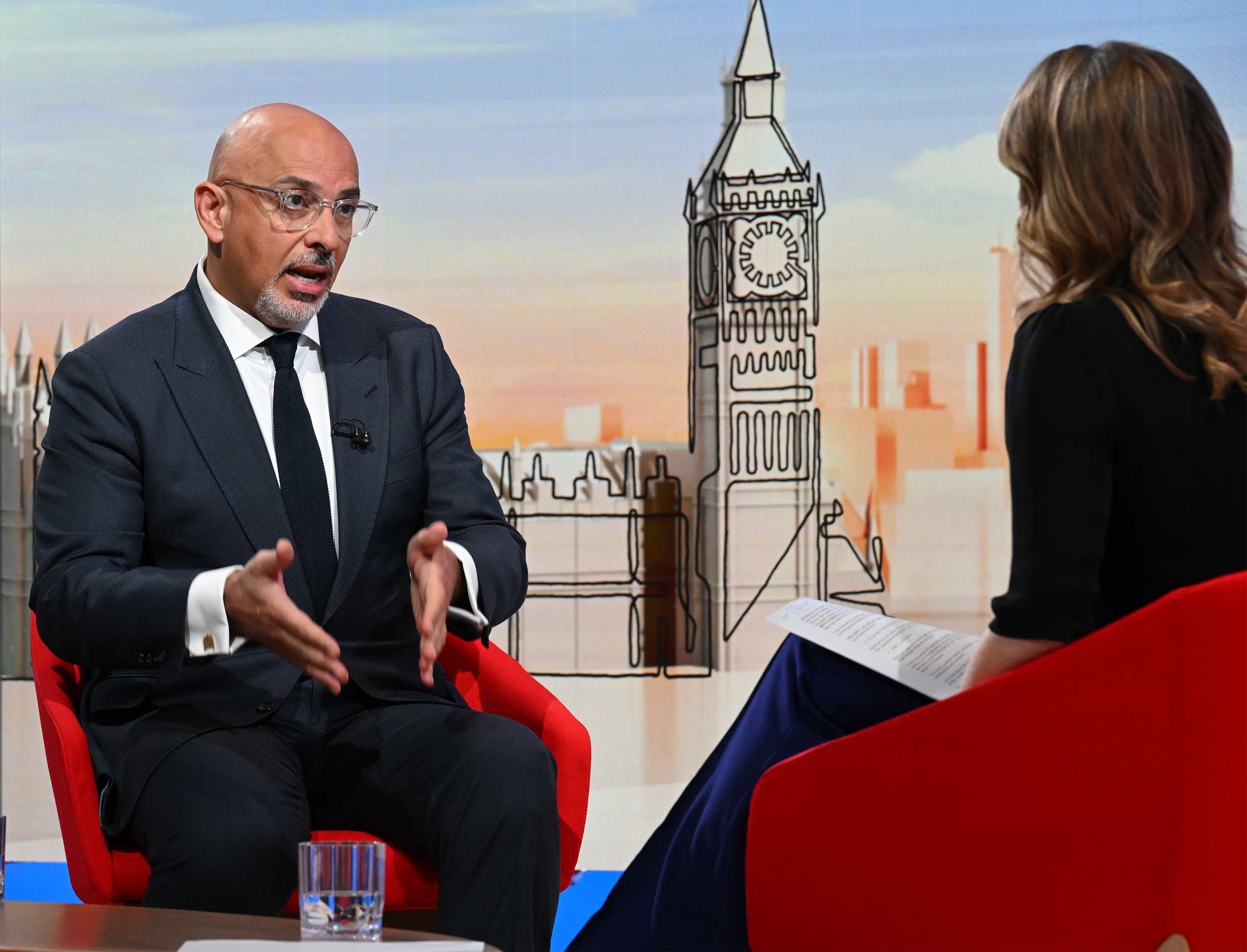The government will lose its battle with the unions
Editorial: There is great public sympathy for those who have felt forced to strike

When a government starts talking about bringing in the army to assist with maintaining public services, it is not, as some seem to believe, a sign of strength but a signal that things have spun badly out of control.
Sitting in the cosy BBC studios with Laura Kuenssberg, Nadhim Zahawi, multimillionaire hapless Tory chairman, must have thought he was reassuring people shivering in the cold that Britain is lucky to have a “great” Cobra team who even now are planning contingency plans for when the wave of strikes hit in the coming weeks.
Mr Zahawi, a former health secretary, likes to don the bedside manner of a hospital consultant reassuring his patient that things are well in hand. “So – whether it’s our military personnel that we’ve trained up, or a surge capacity – that we can actually make sure things like borders are safe and protected, and of course, people’s lives are not disrupted.”
The public would be right to be worried about such bland assurances. It doesn’t matter how many new anti-union laws are passed or how many of Britain’s denuded armed forces are diverted to drive ambulances or run Border Force, the strikes will hit virtually every company and every household one way or another in the run-up to what will anyway be a dismal Christmas – and indeed beyond.
In the case of the sick, the situation will be even grimmer. Despite the promises made by the Royal College of Nursing (RCN) and Unison, it is difficult to see how the industrial action won’t affect patient comfort at least, if not critical safety.
The government may try to set the public against different sets of workers by demonising their leaders and stirring up divisions but it won’t work. Mr Zahawi, who tries to sound reasonable, makes himself look even more desperate and sound even more ridiculous when he says that nurses and ambulance drivers should drop their demands for pay rises to match soaring inflation to “send a clear message” to Vladimir Putin.
Mr Zahawi seems to think that the Kremlin is avidly watching out for the results of the next regional RCN ballot, while the butcher of Bucha himself hangs on Steve Barclay’s every word. If the British government seriously believes that if the RCN and Unison halted their industrial action then Crimea would be liberated that much sooner, then it has lost the plot as well as the next election.
It isn’t President Putin that ministers need to be concerned about, but the great British public. There is great public sympathy for those who have felt forced to strike. People understand the squeeze. They empathise. They don’t view their fellow workers and citizens as greedy. The strikers aren’t involved in “wildcat” disputes. Thanks to laws the Conservatives themselves passed, industrial action is legitimised via impeccably democratic secret ballots with high turnouts and due prior notice to employers.
Attempts to enforce amorphous “minimum service” levels on the railways and perhaps elsewhere won’t work because the unions will find new ways to undermine the rules, and the disruption is anyway so widespread that it would make little difference. A train full to capacity and beyond isn’t safe and isn’t much use if you can’t get on it.
There are two much bigger factors working against the government as it battles through the winter, bigger than the law and drafting in the army. First is the economic reality of widespread labour and skills shortages. The reason why there are so many strikes is because of the cost of living crisis – but also that employers are so short-staffed they have to pay higher wages in order to retain their workforces. That overall pressure feeds through to the public sector as well.
To keep up to speed with all the latest opinions and comment, sign up to our free weekly Voices Dispatches newsletter by clicking here
Ministers are fooling themselves into believing they can run the NHS or the trains without adequate staffing levels, and that they can rely on soldiers and legislation to release them from the laws of supply and demand as applied to the labour market. They are self-deluded, at best.
Second, no government can prevail without public sentiment on its side. Naturally, there will be resentments about missed trains, late parcels and cancelled hospital appointments – but who do the voters blame for the mess? Do they blame the nurses, train drivers and postal staff themselves – the people so lauded during the pandemic – or do they blame the ministers who’ve driven the country’s economy into the state it is in?
Is it Mick Lynch of the National Union of Rail, Maritime and Transport Workers (RMT) or Rishi Sunak of Westminster who’s responsible for the economic crisis? Is it – to borrow one of Mr Sunak’s jibes at the Labour Party – this Tory government or the RMT and the RCN who are on the side of hard-working families?
The public, many of whom wish they could go on strike for higher pay, made their minds up about the state of the economy and who is accountable for it long ago. And that is why the Conservatives are unpopular and that is why the government will lose its battles with the unions.
Join our commenting forum
Join thought-provoking conversations, follow other Independent readers and see their replies
Comments
Bookmark popover
Removed from bookmarks